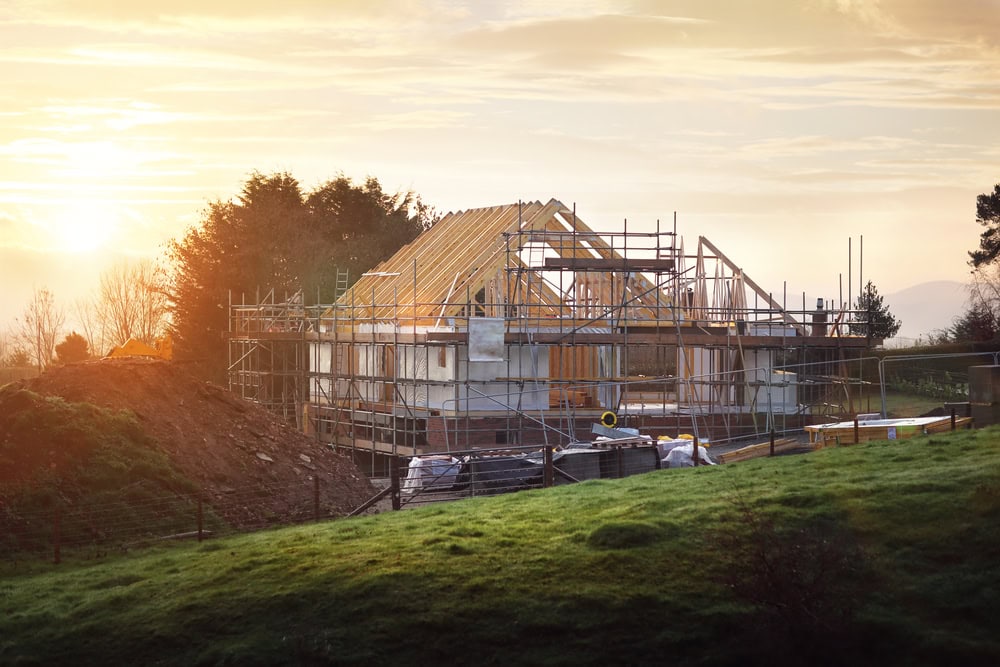While it’s true that public construction comes with more constraints, codes, and requirements, you still need a contractor license for all private construction costing $500 or more in materials or labor.
The consequences of working as a contractor without a license are very serious. The Contractors State License Board (CSLB) exists to enforce the much-needed state-regulated construction standards that ensure the safety and quality of construction jobs across the state.
While you usually need a contractor’s license on pretty much every project in California, there are some exceptions when it comes to private construction. Let’s take a look at private construction and see how the CSLB contractor’s license comes into play.
Why Are Contractor Licenses Required?
1. Safety and Quality
In construction, safety and quality are most important. People need to know that the homes, offices, stores, and other buildings we spend our time in are safe and habitable. A contractor license ensures safety and quality, serving as a voucher that proves your training and expertise when it comes to these facets of the business.
2. Legal Compliance
Licensing makes sure contractors stick to local building codes, zoning laws, and regulations. Any lawless, unregulated construction is a hazard for the property owner and the surrounding public. Licensing protects you from unnecessary legal struggles by ensuring that there are consequences for running afoul of local ordinances.
3. Consumer Protection
Since licensing requires contractors to carry insurance and bonds, a contractor’s license provides a guarantee to consumers that they will be able to be made whole financially in the case of a contractor not following through. A contractor’s license serves as a built-in promise that shoddy work or random incidents related to construction can be met with financial recourse.
4. Taxation and Regulation
Contractor licensing can help the government regulate and collect taxes on construction work. It helps take the ambiguity out of what contractors owe in taxes, creating more clarity for contractors and allowing for more precise estimations and quotes.
Different Types of Contractor Licenses for Private Construction
As you assess your private construction needs, you might not be sure which work requires a license and which license classifications are most relevant to you. Here are the key types of contractor’s licenses you may need on your private construction job.
1. General Contractor License
The Class “B” General Building Contractor’s License is required for projects involving major construction involving two or more trades. Whether you’re building new homes, commercial buildings, or doing renovations, this license covers general contractor work.
2. Special Contractor Licenses
Sometimes general contractors subcontract for certain jobs involving specific trades. You’ll need special licenses to perform specialized construction work like electrical, plumbing, HVAC, or roofing. All the CSLB license classifications are listed on the CSLB website.
3. Residential Contractor License
In some regions, residential construction requires a separate license. If your construction project involves home renovations, additions, or repairs then you’ll need a B-2 Residential Remodeling Contractor license.
4. Commercial Contractor License
In certain areas, a specific license is needed for commercial construction. This license covers large-scale projects like office buildings, warehouses, and retail spaces. See our earlier post on the key differences between residential and commercial contractors for more information.
Getting a Contractor License in California
The California Contractors State License Board (CSLB) is responsible for regulating contractors in the Golden State. You can update, renew, or apply for your contractor license through the CSLB website. The process of getting your license can be complex and requires several steps.
We have talked about the process for getting your contractor’s license before and all the same steps apply to your work in private construction. You’ll need:
1. Education and Experience
Contractors need to demonstrate a certain level of education and skill. Apprenticeship programs, vocational training, or relevant work in the field will help cover these requirements.
2. Exam Prep
In most cases, you’ll need to prepare for a written exam and pass to get a contractor license. This confirms your knowledge of construction practices, codes, and regulations.
3. Insurance and Bonds
As mentioned above, contractors need liability insurance and surety bonds. It’s a license requirement put in place to protect clients and hold contractors accountable for their work.
4. A Complete Application and Payment for Fees
To get a contractor license you have to complete an application and submit it. This process involves paying fees, but you can keep those fees to a minimum if you allow this blog post to guide you.
5. Routine License Renewal and Continuing Education
Periodically, licensed contractors have to renew their licenses. Something that goes along with that is continuing education. Taking continuing education courses throughout your career is important so you stay current on trends, best practices, and updated regulations.
Conclusion
You do need a contractor license for private construction projects. Cases where a license isn’t required are quite rare and the consequences for doing unlicensed work are substantial.
Specific requirements for securing specific contractor licenses vary based on region and the classification of the construction work. But you can find all the information you need to make sure your work is compliant on the CSLB website.

